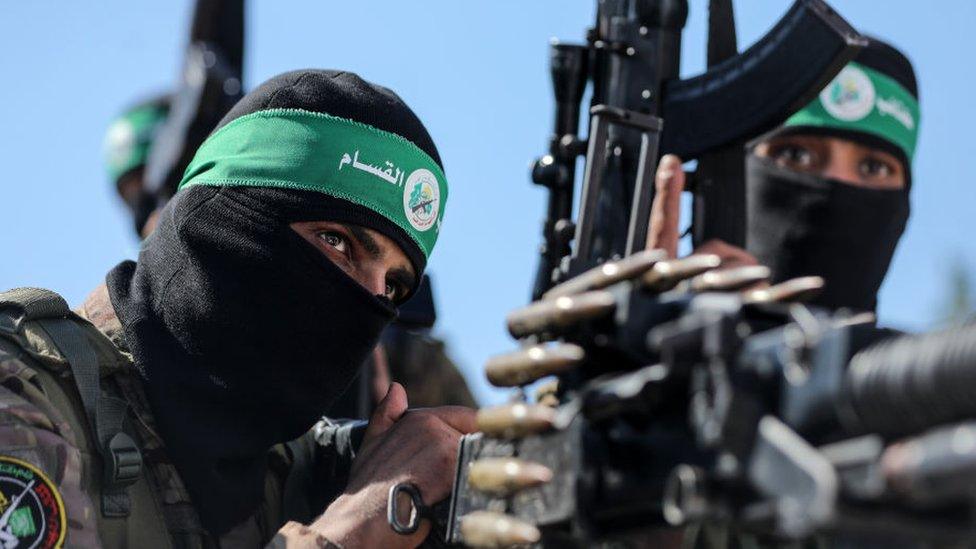Israel-Gaza war: David Cameron says BBC report into Nasser hospital raid 'very disturbing'
- Published
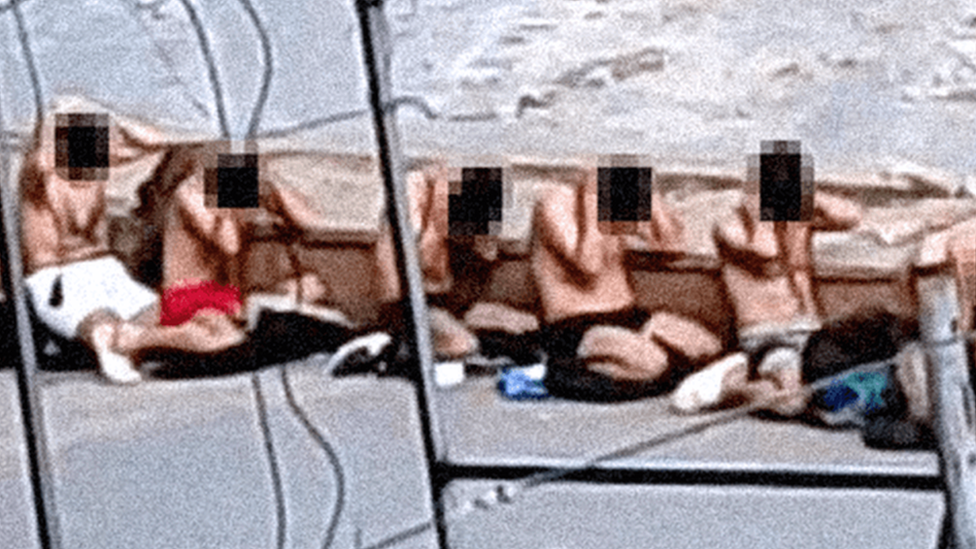
Footage supplied to the BBC showed medics detained at Nasser hospital stripped down and kneeling outside
David Cameron has said the BBC report about Palestinian medical staff in Gaza being beaten and humiliated by Israeli troops is "very disturbing".
The foreign secretary called for "answers from the Israelis".
Three medical staff told the BBC they were humiliated, beaten, doused with cold water, and forced to kneel for hours. They said they were detained for days.
Israel said "any abuse of detainees is strictly prohibited".
Lord Cameron told the House of Lords: "These are very disturbing pictures and reports that have come out from this hospital and we need to get to the bottom of what exactly happened and we need answers from the Israelis about that."
The foreign secretary was questioned about the BBC's report by Labour peer, Lord Collins of Highbury, during a series of questions about the Israel-Gaza conflict in the upper chamber.
Earlier in the day, Lord Cameron's deputy in the House of Commons Andrew Mitchell called for an investigation and a "full explanation" when responding to questions from MPs.
Asked about the BBC report, Foreign Office minister Mr Mitchell said: "There needs to be a full and thorough investigation and accountability for what was reported today by the BBC... the Foreign Office is pressing for full transparency and accountability in that matter."
Mr Mitchell was responding to a question from the shadow international development secretary, Lisa Nandy, who said the BBC report raised "serious allegations".
After being asked about the report by another Labour MP, Beth Winter, Mr Mitchell said a "full explanation... is required".
Ms Winter had also asked: "Does the UK government believe that the Israeli government is responsible for the conduct of its forces and that this clearly appears to be torture and is in breach on international law, including the universal declaration of human rights and the Geneva Convention article 18?"
Mr Mitchell responded that "Israel must comply" with Article 18 of the Geneva Convention which states that: "Civilian hospitals organised to give care to the wounded and sick, the infirm and maternity cases, may in no circumstances be the object of attack, but shall at all times be respected and protected by the parties to the conflict."
Mr Mitchell said there were lawyers embedded in the Israeli and the IDF command that should ensure the "acceptance and honouring of international humanitarian law is kept".
Amnesty International UK's Chief Executive Sacha Deshmukh said Mr Mitchell's response was "simply not good enough".
In a statement, Mr Deshmukh said: "Ministers are being either woefully naïve or simply disingenuous if they believe the Israeli authorities can reliably investigate themselves."
He added: "We need major change from the UK over this terrible crisis, and this should include calling for an immediate ceasefire, exerting concerted pressure on Israel over allowing vastly scaled-up aid deliveries, while also demanding that Israel end its 17-year-long blockade of Gaza, which is an act of collective punishment."
Dr Abu Sabha said he was detained and beaten by Israeli forces after the raid on Nasser Hospital.
The report relates to an IDF raid on the Nasser hospital in the southern Gazan city of Khan Younis - which was one of the few in the Strip still functioning - on 15 February. The Israel Defense Forces (IDF) said intelligence indicated that the hospital housed Hamas operatives.
They also said Israeli hostages taken by Hamas on 7 October had been held there - and some of the hostages themselves have publicly said they were kept at Nasser. Hamas has denied that its fighters operate inside medical facilities.
Footage secretly filmed in the hospital on 16 February, the day the medics were detained, was shared with the BBC.
It shows a row of men stripped to their underwear in front of the hospital's emergency building, kneeling with their hands behind their heads. Medical robes are lying in front of some of them.
Ahmed Abu Sabha, a doctor at the hospital, described to the BBC being held for a week in detention, where, he said, muzzled dogs were set upon him and his hand was broken by an Israeli soldier.
His account closely matches those of two other medics who wanted to remain anonymous for fear of reprisals.
The BBC supplied details of their allegations to the IDF. They did not respond directly to questions about these accounts, or deny specific claims of mistreatment. But they denied that medical staff were harmed during their operation.
They said that "any abuse of detainees is contrary to IDF orders and is therefore strictly prohibited".
The report was raised at a briefing by the US State Department - the Washington equivalent of the Foreign Office - by a reporter from the international Reuters news agency, who asked if Dr Abu Sabha's case had been raised with the Israeli government.
State Department spokesperson Matthew Miller was unable to confirm whether Dr Abu Sabha's case had been raised - after earlier saying the issue of detainee conditions had been - but said "I would expect that we would".
"It's the type of cases that we that we often raise with them to seek more information and to make clear as we always have that any detainees should be treated in strict compliance with international humanitarian law," he added.
The BBC investigated the hospital's story for several weeks, speaking to doctors, nurses, pharmacists and displaced people camping in the courtyard. We have cross-checked details in these accounts.
We were given the names of 49 Nasser medical personnel said to have been detained. Of those, 26 were named by multiple sources, including medics on the ground, the Hamas-run health ministry, international groups, and the families of those missing.
The war began when Hamas gunmen attacked southern Israel on 7 October, killing about 1,200 people and seizing 253 hostages. More than 31,180 people have been killed in Gaza since then, the Hamas-run health ministry says.
Related topics
- Published12 March 2024
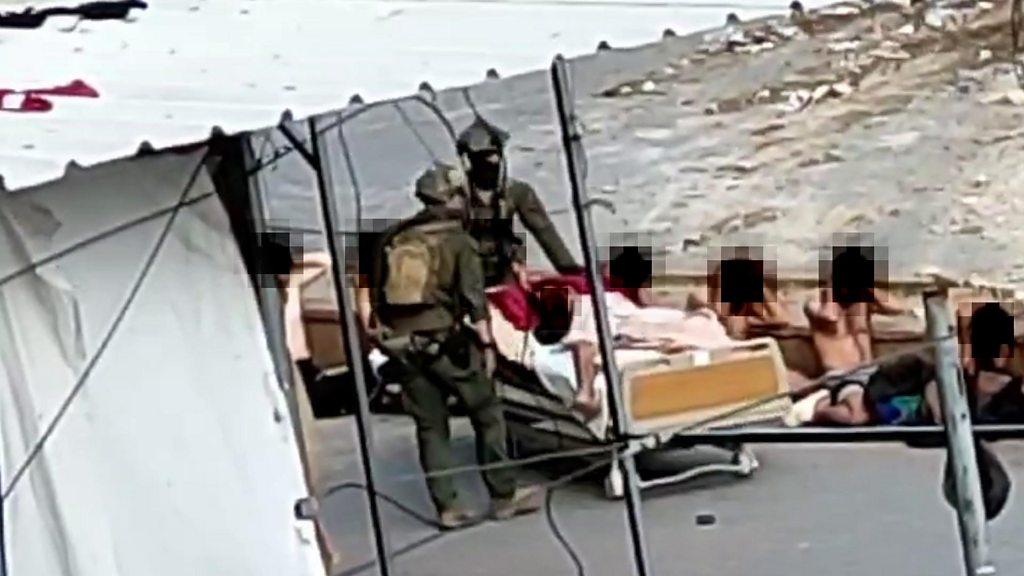
- Published5 March 2024
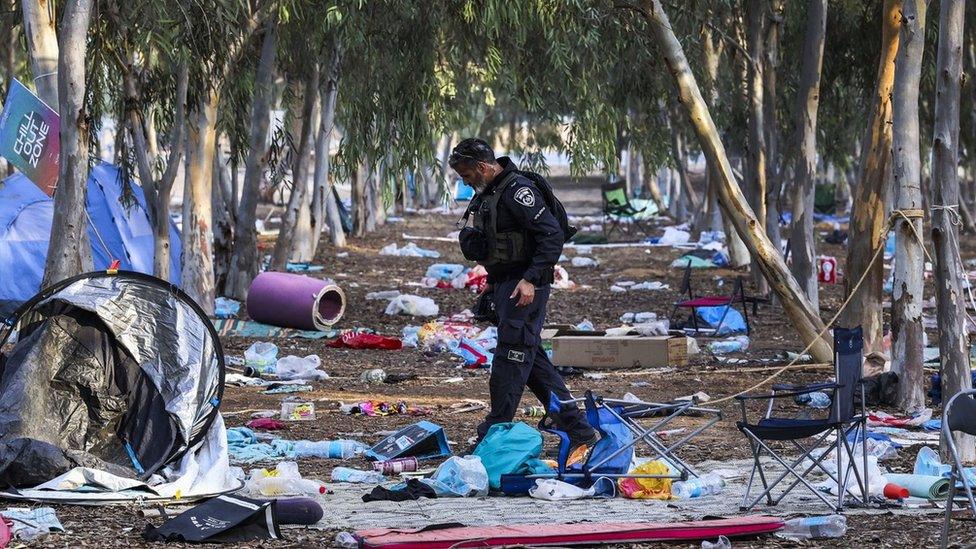
- Published16 February 2024
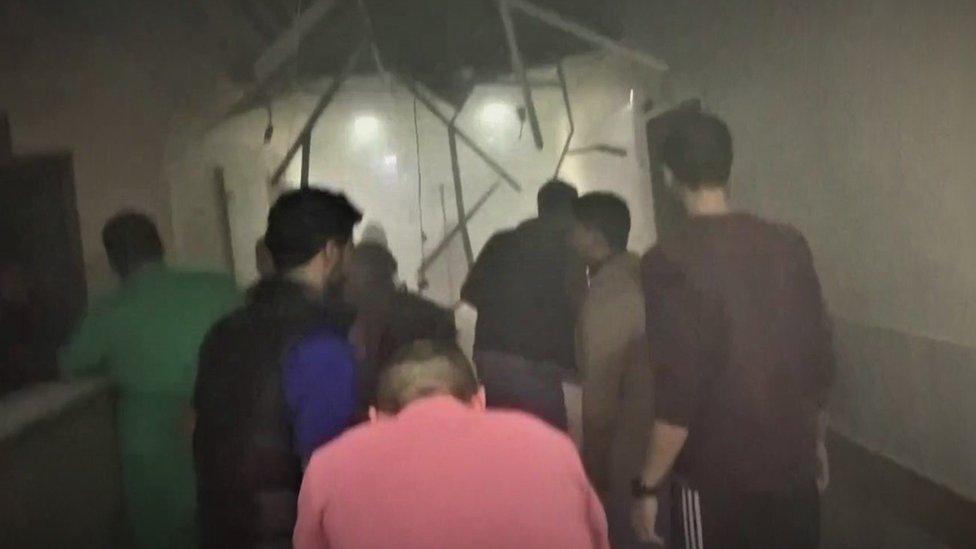
- Published18 February 2024
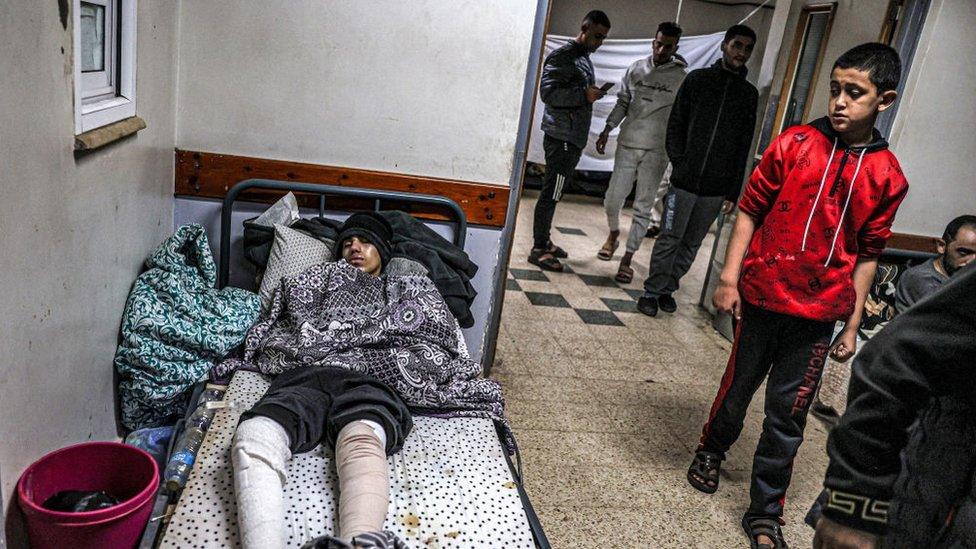
- Published8 March 2024
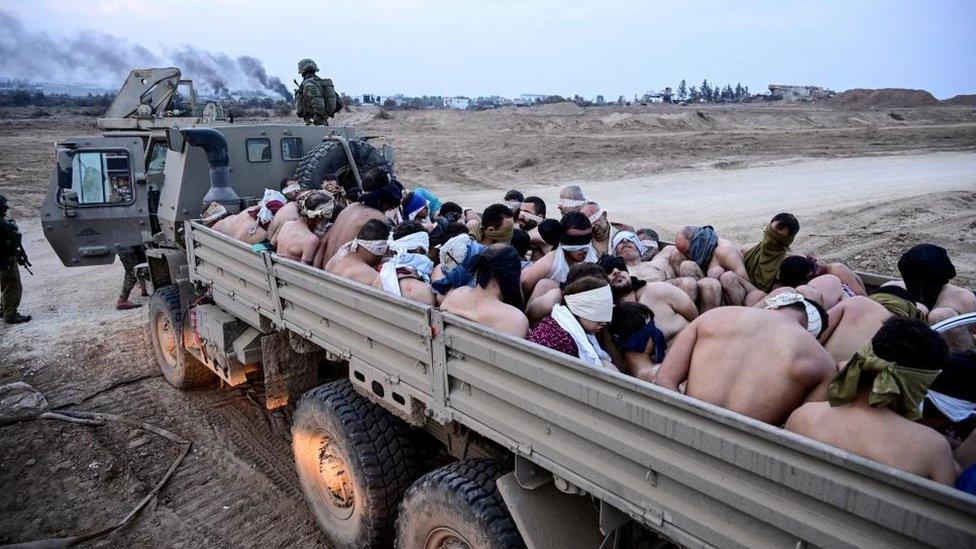
- Published12 March 2024

